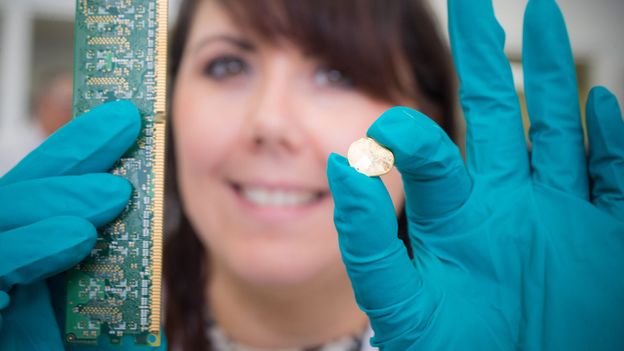- cross-posted to:
- green@lemmy.ml
- cross-posted to:
- green@lemmy.ml
Summary
The UK Royal Mint has developed an innovative method to extract precious metals, particularly gold, from electronic waste such as discarded laptops and mobile phones. This sustainable and energy-efficient process claims to recover 99% of gold from printed circuit boards, and the Royal Mint plans to open a factory capable of processing 90 tonnes of circuit boards per week, potentially recovering hundreds of kilograms of gold annually. The method involves a chemical solution that dissolves and leaches gold at room temperature and is “environmentally friendly”, producing fewer greenhouse gas emissions than traditional smelting methods. The initiative aims to reduce e-waste and the environmental impact of mining for raw materials.
Other Details
-
E-waste is a rapidly growing waste stream, with an estimated 50 million tonnes produced globally each year.
-
Only 20% of e-waste is formally recycled, with the rest often sent to landfill or incinerated.
-
The Royal Mint’s initiative is focused on sustainable recycling within the UK and reducing the need to export e-waste for processing.
-
The method has the potential to recover other precious metals like palladium, silver, and copper.
-
The goal is to establish a network of local e-waste suppliers and processors to encourage reuse and reduce waste miles.
-
The Royal Mint aims to generate 70% of its required power from renewables, including energy produced from the waste processing.
-
There is growing interest in recycling e-waste to recover valuable materials and reduce the environmental impact of mining for these resources. Innovative methods like this could drive the growth of a more circular economy for precious metals.



Yeah, it’s sort of hard to define “environmentally friendly.” We fart. That’s OK, totally natural, environmentally friendly, right? 7 billion of us fart? Well, that’s stinking greenhouse gas right there…